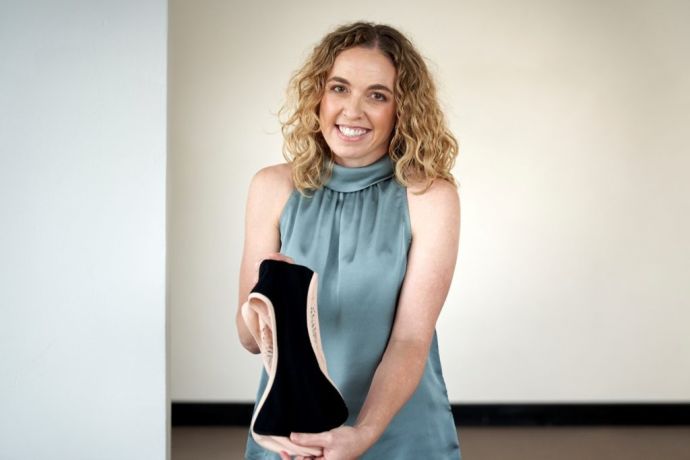It's no secret that 2020 was a year like no other. To mark International Women's Day 2021, DCC caught up with some of the impressive women in its network of Women in STEM, to ask them about the past 12 months, and the lessons and insights they have gained in the face of the challenges of the Covid-19 pandemic. Across this month, we will be sharing some of their responses with you.

"We are a customer led business, so we listened to the consumers and changed out all our messaging to ensure it was sensitive and reflective of the time. The interesting output of Covid was that it not only accelerated online shopping but the demand for more ethical and sustainable brands." – Kristy Chong, ModiBodi®
Kristy Chong is the CEO and founder of Modibodi®, a fashionable, super comfortable and sustainable range of garments designed to avoid the need for disposable personal hygiene products and better manage life's bodily leaks. In her photograph, Kristy is holding one of Modibodi®'s best-selling products, the Sensual Bikini, featuring their patented Modifier Technology built into the gusset. Kristy was one of the panellists at DCC's panel discussion on Gender Equality in STEM, held at DCC's Sydney office in May 2018.
- If the last year has proved anything, it is that "change is the only constant in life". In what ways do you feel you and your business were prepared for the changes we have all experienced over the last 12 months?
Like many businesses, when Covid hit, we were all concerned what it would mean, but what we realized very early on was that business as usual was off. As an ecommerce native brand, one of the many benefits is the ability to pivot marketing creative and spend easily and quickly, and as a global business it also means we can pivot into multiple markets and these two strengths worked to our advantage in 2020.
- In what ways have you had to "pivot" to adapt to that change?
With the onset of the unknown we had to regroup, assess the impact to performance and then adapt, because what we have learnt as a business is that in uncertain times consumers stop spending, but as soon as a decision is made about the future (even if that meant going into lockdown), our online trade returns. We are a customer led business, so we listened to the consumers and changed out all our messaging to ensure it was sensitive and reflective of the time. The interesting output of Covid was that it not only accelerated online shopping but the demand for more ethical and sustainable brands. During the peak of the pandemic, Modibodi® experimented with free shipping thresholds and introduced a risk-free trial and longer timeframes on returns, offering customers more flexibility. We continued to innovate with regards to our product offering and we extended our customer care hours of availability for further support.
- What lessons from the pandemic do you plan to take into the future (post-pandemic world)?
We will stick to a 3-day in office, 2-day at home working (with two crossover days for all staff), as I believe this has positively impacted the staff morale. We will continue to grow globally and maintain a strong d2c presence in more than one market to diversify our risk. And lastly, we will remain nimble, and keep innovation at the core of everything we do, as it creates a culture of being ok with change and a little risk, rather than fearing change and newness.
- You were a thought leader when you created your brand, ModiBodi®, as one of the first in the reusable and sustainable leak-proof apparel market! Have you seen a shift toward sustainable products becoming more mainstream, and what do you hope for the future of this market?
Modibodi® has seen substantial growth year on year, which is proof of how people around the world are embracing period and leak-proof sustainable underpants and choosing to help protect our environment from damaging disposable hygiene items. We hope the future looks greener and brings a sense of freedom and the continual normalization of periods and bodily leaks.
The content of this article is intended to provide a general guide to the subject matter. Specialist advice should be sought about your specific circumstances.


